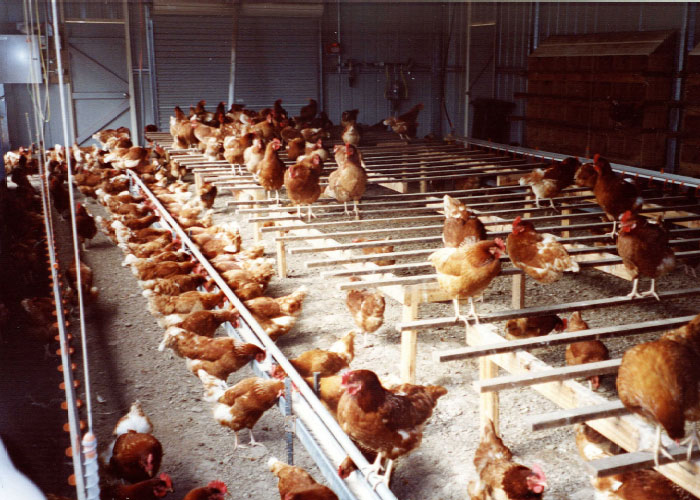As sending live spent hens for processing becomes more costly and difficult, egg producers are searching for alternative methods of managing depopulation at the end of lay. The Poultry CRC has responded to this need by commissioning the Australian Egg Corporation Limited (AECL) to manage a project undertaken by industry partner Scolexia, entitled Development and Extension of Industry Best Practice for On-Farm Euthanasia of Spent Layer Hens. The project aimed to develop optimal procedures for the mass euthanasia of spent layer hens in an acceptable and humane manner.
Led by Drs Angus Crossan (AECL) and Peter Scott (Scolexia), the first step involved an extensive literature review to evaluate commonly used methodologies for mass euthanasia in poultry, around the world. Findings showed that the majority of methods used focused around mass euthanasia following animal disease outbreaks, often with the overriding potential for zoonosis. Angus and Peter found far less literature directly concerned with the controlled killing of poultry for the sole purpose of depopulation. Their research established that Modified Atmosphere Killing (MAK) using carbon dioxide (CO2) is the most practicable and suitable method for on-farm use. And, indeed, up to 25% of egg producers are currently using MAK with CO2 on their farms.
The final report from Angus and Peter’s project is now available from the Poultry CRC. From here, the Poultry CRC will run three, one-day workshops across the month of June this year (2015) covering the principles of MAK (equipment design, operation, etc.). While the details are still being finalised, it is expected that workshops will be conducted in Queensland, New South Wales and Western Australia. The morning session on MAK will be followed by a refresher on composting (as one of the alternative methods of carcass disposal) and a Q&A session. These workshops will be free for egg farmers to attend and more information on registration and locations will be available when times and dates are finalised (alternatively, please contact the CRC for more information). In addition, for those egg producers who will be attending the AECL forum in Adelaide, a summarised version of the workshops will be given at the conclusion of the forum, from 13:30 to 15:30 (note: numbers may be limited, first in, best dressed). Those producers wishing to stay on after the forum for this session are asked to contact Lorraine at AECL to book.
MAK’s ongoing utilisation and expansion will be dependent on the industry being to demonstrate that it can objectively and sustainably undertake the process in a humane manner. For this reason, the Poultry CRC is running the workshops and producing a manual on Modified Atmosphere Killing to ensure that the correct information is disseminated regarding the required procedures which must be undertaken if this method is used on farm.



